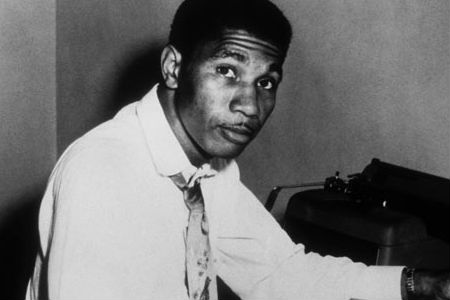
In a piece at the Guardian, Martha Bergmark, founding president and CEO of the Mississippi Center for Justice, reflects back on the death of Medgar Evers, the NAACP activist who was gunned down in Jackson, Miss., 50 years ago today. She says his work still lives on.
On this day, 50 years ago, I was a white teenager in Jackson, Mississippi, absorbed most of the time with the typical concerns of childhood. But I vividly remember 12 June 1963, because that night my family and I heard the news that Medgar Evers, a well-known civil rights leader in our state, had been shot and killed in the driveway of his home, just a few miles from where we lived.
Evers joined the U.S. army and fought in Europe during the second world war, only to return home to a state where slavery had been replaced by Jim Crow laws that institutionalized discrimination in every aspect of life. Before long, he applied unsuccessfully to become the first African American to attend the law school at Ole Miss. There, he led sit-ins and boycotts of businesses that practiced segregation – even though he knew that challenging the white power structure could cost him his life.
For many of us, white as well as black, the assassination of Medgar Evers was a turning-point. We were forced to ask ourselves with regard to the growing civil rights movement, “Where do I stand, and what am I willing to risk?”
Today, on the 50th anniversary of Evers’ death, we as a nation are confronted by the same question. Undeniably, the heroic movement that Evers and many others inspired brought an end to legal apartheid and transformed my home state and our country in important ways.
But our work as a nation to achieve racial and economic justice is far from finished. It’s not just that voting rights are once again under attack in many states, including Mississippi. More than that, de facto segregation and discrimination continue to threaten equal access to education, affordable housing, healthcare, financial services and the job market.
The numbers are staggering. Nationally, the African-American unemployment rate is about double that of whites. On average, black and Latino families have about one-sixth the wealth of white families. Fewer than half of black males graduate from high school, and African Americans are incarcerated at nearly six times the rate of whites.
Read more at the Guardian.
(Photo: Civil Rights Activist and NAACP Field Secretary Medgar Evers poses for a portrait circa 1960 in Jackson, Miss. (Michael Ochs Archive/Getty Images)